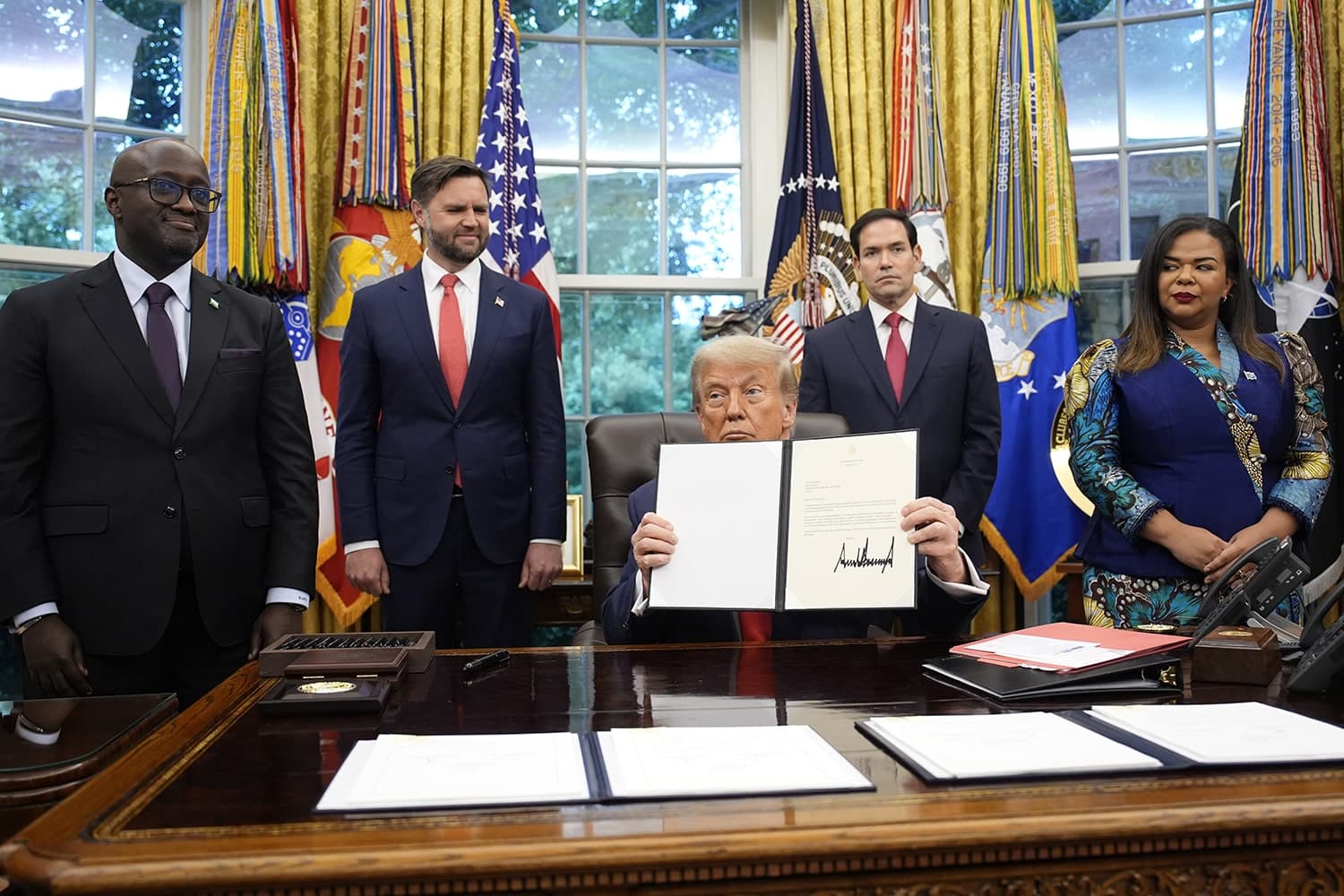We're loading the full news article for you. This includes the article content, images, author information, and related articles.
An economic cooperation framework between the DRC and Rwanda has been initialed in Washington D.C., but its activation hinges on fulfilling a fragile peace accord. For Kenya and the EAC, the deal presents both opportunities for regional stability and risks from the unresolved conflict.

WASHINGTON D.C. – The Democratic Republic of Congo (DRC) and Rwanda initialed a U.S.-brokered economic agreement on Friday, November 7, 2025, a significant step in a fraught, high-stakes diplomatic effort to resolve decades of conflict in the Great Lakes region. However, the activation of this economic framework is explicitly contingent on the successful implementation of a stalled peace deal signed in June, creating a complex dynamic for regional stakeholders, including Kenya.
The agreement, officially the Regional Economic Integration Framework (REIF), was initialed during the fourth meeting of the Joint Oversight Committee in Washington, D.C., attended by representatives from both nations, the United States, Qatar, the African Union, and Togo as the AU mediator. According to a joint statement from the U.S. State Department, the framework outlines key areas for economic cooperation, including mineral supply chains, energy, and infrastructure, aimed at fostering development and attracting Western investment.
This development is a key part of the 'Washington Accord,' a peace treaty signed on June 27, 2025, which mandates the withdrawal of Rwandan troops from eastern DRC and requires Kinshasa to neutralize the threat from the Democratic Forces for the Liberation of Rwanda (FDLR), a Hutu rebel group with roots in the 1994 genocide. The U.S. has positioned the economic pact as a powerful incentive for peace, linking access to the DRC's vast mineral wealth—including cobalt, coltan, and lithium—to tangible progress on security commitments.
Despite the step forward on the economic front, the core peace agreement has seen "lagging progress." A statement from the oversight committee acknowledged the delays and noted a recommitment from both parties to "redouble efforts." The situation on the ground remains volatile, with persistent fighting and accusations. Congolese President Félix Tshisekedi recently accused his Rwandan counterpart, Paul Kagame, of seeking to annex the DRC's eastern provinces. Rwanda, in turn, maintains its presence in the DRC is a defensive measure against the FDLR.
The peace process is complicated by multiple, overlapping mediation tracks. The U.S.-led 'Washington Process' focuses on the bilateral relationship between the DRC and Rwanda. Concurrently, the 'Doha Process,' mediated by Qatar, facilitates negotiations between the Congolese government and the M23 rebel group, which was not a party to the June peace deal. These efforts run parallel to long-standing African-led initiatives: the Luanda Process, previously led by Angola to de-escalate state-level tensions, and the Nairobi Process, facilitated by former Kenyan President Uhuru Kenyatta under the East African Community (EAC) framework to address the issue of armed groups.
Earlier in 2025, Angola stepped back from its lead mediation role, citing the need to focus on its chairmanship of the African Union, creating a diplomatic gap. There have since been calls to merge the Luanda and Nairobi processes to enhance coordination, a move supported by the EAC and the Southern African Development Community (SADC).
For Kenya, the unfolding situation presents a complex mix of diplomatic challenges and economic opportunities. As a key member of the EAC and host of the Nairobi Process, Kenya has a vested interest in regional stability. The conflict in eastern DRC has significant economic repercussions for the region, disrupting trade and creating humanitarian crises. Data from the first half of 2025 showed that Rwanda's exports to the DRC surged, largely to rebel-controlled territories, highlighting the war economy that has taken root.
A successful peace deal could unlock immense economic potential. The U.S.-backed economic framework aims to formalize mineral value chains and link them to projects like the Lobito Corridor, potentially boosting regional trade and benefiting EAC partner states. Kenya has consistently advocated for the deepening of the EAC Common Market Protocol to facilitate freer movement of goods and capital, which a stable eastern DRC would significantly advance.
However, Kenya's diplomatic standing has been tested. Kinshasa has previously shown frustration with the EAC's response and has leaned more towards SADC for security support, even refusing to accredit Kenya's ambassador for over a year. President William Ruto's administration has been accused of a premature diplomatic approach, occasionally undermining consensus within regional blocs. Despite these frictions, Kenya has continued to voice its support for all mediation tracks, emphasizing the need for African-led solutions complemented by international partnerships.
As the DRC and Rwanda navigate their commitments under U.S. observation, the broader East African region watches closely. The success of the Washington Accord is not guaranteed, and its failure could further destabilize a region critical to Africa's economic future. The initialing of the economic framework is a hopeful, if tentative, step, but lasting peace will depend on the political will to implement the difficult security measures agreed upon five months ago.
Keep the conversation in one place—threads here stay linked to the story and in the forums.
Sign in to start a discussion
Start a conversation about this story and keep it linked here.
Other hot threads
E-sports and Gaming Community in Kenya
Active 9 months ago
The Role of Technology in Modern Agriculture (AgriTech)
Active 9 months ago
Popular Recreational Activities Across Counties
Active 9 months ago
Investing in Youth Sports Development Programs
Active 9 months ago
Key figures and persons of interest featured in this article